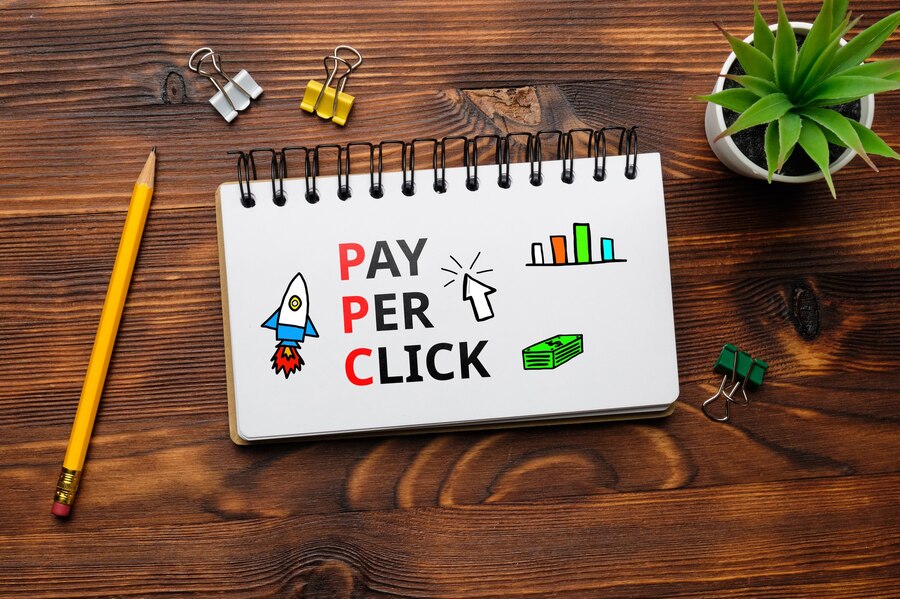Table of Contents
Typically, e-commerce is one of the most competitive verticals in search engine marketing. We’ll be looking at some advanced PPC strategies that you can use with your E-Commerce sites.
When it comes to advertising an eCommerce brand, PPC marketing has a long history of being one of the most effective methods. From Google shopping campaigns to Facebook ads, PPC for eCommerce websites has proven to be a dependable source of near-immediate results.
PPC for eCommerce websites was ranked as one of the top three best channels for high-volume leads in 2020. Now that the effects of pandemic have accelerated eCommerce by five years, competition among eCommerce PPC campaigns is fierce, leaving many marketers looking for long-term, effective strategies in 2022.
Whatever industry you’re in, be prepared for the fact that strong contenders will always try to level the playing field. As these retailers expand, it will be up to you to devise appropriate strategies to adapt to these types of situations.
What is PPC for an eCommerce website?
Ecommerce PPC, or pay-per-click advertising, is a digital marketing strategy that uses paid advertisements to promote an online marketplace and its products. Ecommerce advertisements appear on search engines such as Google, social media networks such as Facebook, and websites such as YouTube. Ecommerce PPC is especially advantageous for achieving a positive return on ad spend (ROAS).
Let’s look at why PPC ads are a good fit for eCommerce. For starters, marketers only pay for pay-per-click advertisements when a user clicks on them, regardless of how many times the ad is displayed or how many users see it. This gives you more control over your marketing budget and results in a more effective PPC campaign that doesn’t drain your ad spend overnight.
Furthermore, eCommerce PPC advertisements drive high-quality traffic to a client’s website. Marketers can build a PPC campaign around branded search terms like a company name as well as high-volume search phrases to ensure their website appears at the top of search engine results pages (SERPs). An eCommerce PPC campaign can take place across multiple platforms, including Google and Facebook.
Why should you use a PPC strategy for your eCommerce brand?
To get quick results on your business
With PPC analytics, you can always see outcomes quickly and effectively, indicating which ad campaigns did the trick. Adapting and enhancing your eCommerce PPC operations becomes incredibly versatile and responsive.
Managing your promotional budget
To calculate your Return on investment, you weigh the cost and type of ad against the number of clicks to your landing page and the number of completed sales from the campaign. You have complete control over how much money you spend on digital marketing, investing as much or as little as you want to generate more website leads.
Offers targeting options
The valuable data generated by PPC can be used to inform future ad campaigns as well as efforts to improve organic search exposure. PPC can also assist you in developing far more product-specific routes to market. It’s also a great way to try out new brand positions and proposals, as well as new target markets.
Drives up profit
The most significant advantage of eCommerce PPC is that it can increase sales. Carefully crafted online ad campaigns achieve high lead conversion rates and provide a strong Return on investment.
Develop brand awareness
One of the most powerful features of eCommerce PPC is its process of raising brand recognition among your targeted customers.
PPC can enhance absorption and lead conversion if you have a business strategy of branding and marketing pursuits in place, including unique and constantly refreshed content.
Measure and Track Consistently
Effective tracking and reporting are essential for a successful eCommerce PPC strategy. Fortunately, PPC ads are among the easiest to track. Marketers can keep a pulse on PPC ads and monitor ad spend over time using free tools like Google Ads in conjunction with Google Analytics or Facebook Ads Manager.
Considerations of ideas for Ecommerce PPC Strategies
Optimize and improve your product pages regularly
From the keywords in your title tag to the last line of your product description, ensuring customer relevancy is critical. It is not enough for your PPC ads to be engaging to attract the right customers. To complete the circle, your product landing page should be singing from the same song sheet as the ad is seen.
Examine the campaigns of your competitors
This not only provides you with a better understanding of how to strategize your future PPC campaigns, but it also reveals unique and valuable keywords to incorporate into both your future ads and your e-commerce site. This will assist you in broadening your keyword base and ranking for more keywords.
Go after less obvious demographics
While approaching comparable audiences for ad accessibility is a no-brainer, pursuing an audience that your competitor is unlikely to have considered gives you a marketing advantage.
Improve your presentation by working on schema mark-up
Simply enter your website URL into a schema mark-up tool, which is freely available on Google, to see if your e-commerce website is well calibrated and to ensure tangible results from your PPC strategies. The results indicate whether you are ready to go and highlight any gaps, as well as suggestions for how to improve your schema. This strategy is being used by many eCommerce SEO companies to leverage their sales.
Make use of ad extensions
Add extensions are simply clear call-outs or action drivers that most ad networks provide as part of the ad. Google Ads, for example, provides price extensions, call extensions, and message extensions.
Analyze and optimize your key performance indicators
The frequency with which you calibrate your PPC KPIs to align with your goals determines a large portion of your ROAS (Return On Ad Spends). It is rarely advised to optimize ROAS based on single purchases. Consider micro-conversion stages, Cost-per-acquired-customer, or Customer-lifetime-value to get a holistic and actionable understanding of your ad performance.
Click-through-rate
Keeping track of impressions is necessary, but the true test of an ad is the number of clicks and the cost per click. If your CTRs are high in comparison to your competitors, analyzing and refining the content for maximum relevance can result in higher conversions.
To Conclude,
The most impactful Paid ads have inbound marketing or landing pages that effortlessly correspond with the ads and offer significance to PPC ads. Therefore, someone must write and design them effectively to ensure the generation of more clicks.









